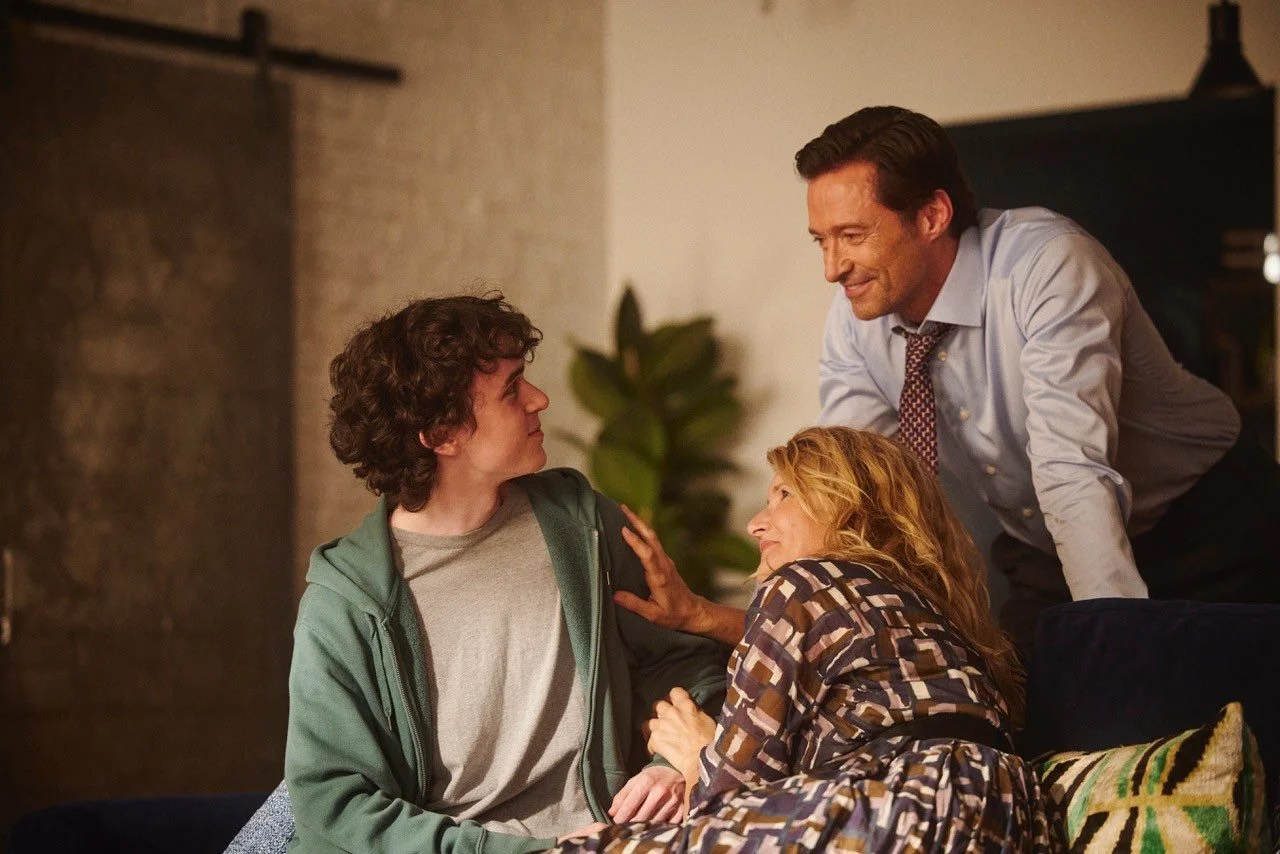'The Son' Review: Like Father, Not So Much Like Son [TIFF 2022]
Florian Zeller’s Sophomore effort reaffirms ‘the Slump’ is a real thing. did he set the Bar Too High?
After the attention garnered by Florian Zeller’s The Father, the excitement for The Son seemed only natural. The Father was not only critically praised and well-received by audiences, but also made an impact during the awards circuit, including a Best Picture nomination at last year’s Oscars. Sadly, Zeller’s second film can be easily defined as a sophomore slump, which is certainly surprising when considering the success of The Father.
Like The Father, The Son was written by both Zeller and his writing partner, Christopher Hampton. After watching their most recent film, it feels almost ridiculous that the collaborators took home the Academy Award for Best Adapted Screenplay just two years earlier. The Son’s screenplay is perhaps the weakest thing about it, but, unfortunately, it doesn’t have much support in other areas, either. Despite both films being based on Zeller’s plays, and even sharing a talented cast member (Anthony Hopkins), The Son does not come close to the same level in terms of story, acting or overall success when compared to Zeller’s first film.
The film stars Hugh Jackman, who plays Peter, a workaholic married to his second wife, and Zen McGrath, who plays Nicholas, Peter’s teenage son from his first marriage. Laura Dern plays Kate, Peter’s ex-wife and Nicholas’ mother, and Vanessa Kirby plays Beth, Peter’s current wife and Nicholas’ stepmother. The film almost totally revolves around these characters, with one scene with Anthony Hopkins as Peter’s father and a few other scenes including various secondary characters. The Son focuses on Nicholas’ struggle with depression and how that impacts both him and his family members, which seems like a fine concept that could hold a lot of potential, but ultimately falls flat.
Hugh Jackman’s performance currently has significant buzz around it, with some believing he may have the potential to secure an Oscar nomination for best actor this year. However, unless this is a weak year for lead performances, the poor quality of this film will likely hold him back. Jackman does give his all, and in certain scenes, he is impressively convincing, but other times, especially when paired with certain lines from the script, his attempts at melancholy seem forced, bordering on cringe-worthy. Counter to that, and to his credit, Jackman is able to display what feels like real anger at times, successfully pushing fierce emotion through the screen and make the viewers believe it, but it is a flawed performance, to say the least. Jackman does what he can with the script and what is expected of him, but with the hindrances of the writing, he is far from magnificent.
Zen McGrath, a newcomer on the film scene, was horribly miscast in this film. Once again, it may or may not have been the script’s dialogue that made McGrath sound so stilted, but he was entirely difficult to empathize with – a difficult thing to overcome for a viewer when watching a film depending on these qualities, especially considering he is the central character.
Dern and Kirby were functionally adequate, with the latter giving a more credible performance, but neither seemed inspired within their roles. Hopkins’ singular scene is well-done, if only for his delivery. If you choose to examine exactly what was said within the scene, it ultimately feels basic and empty. It is framed in the film as a shocking revelation, but any fan of media, whether that be film, television, or books, has seen the same thing happen many times before. The predictability of the script is almost certainly one of its largest faults. The way this film tries so stubbornly to make itself seem so new and real makes it so much harder to sit through and attempt to believe in it.
There are various problems with the technical side of this film as well. The sound mixing and design stood out as problematic. There’s a scene where a diegetic happy dance song plays while three characters strut about, and, suddenly, it is overtaken by a non-diegetic song with a completely different tone. The edit is so loud and jarring, it takes a viewer right out of the scene and makes one feel painfully aware of how poorly put together some aspects of this film are. The goal of the song is to change the viewer’s mood, but instead, it comes off as irritating.
As mentioned, the script is both unrealistic and predictable – which perhaps is the most impressive feat regarding the screenplay. For anyone that has experienced teenage depression or someone they love has or is going through it, the dialogue often exchanged between characters is ridiculous, and at times, laughable. This feels like a film made by people who read about teenage depression in a parenting book and tried to transform it into something artistic and deep. There is no nuance present, with the characters quite literally becoming parodies of the typical angry, misunderstanding parent and the silent teenager.
The viewer is hit over the head with deafening emotionally manipulative music and continuous tragedy to try and invoke a response, which may work for some, but honestly feels cheap.
Further, without explaining the deeper plot points, the end of the film can be seen coming from the outset. Due to the nature of the conclusion, its difficult to watch, and the message the film leaves you with, is frankly, irresponsible. It touts this goal to delve into a real-world problem, but ends up painting the person struggling with mental illness as completely untrustworthy. This is a dangerous thing to do – with parents that may be uneducated in a field like this, merely watching this film could leave a lasting impact where they choose to ignore their child’s wishes and needs in favour of what they believe is best for them. While this may be a stretch, and people may not change their behaviors at all, just the potential is enough to frustrate. Just because someone, even someone who is 17 years old, is experiencing mental illness, they shouldn’t completely lose autonomy, and a now critically acclaimed director putting a message like this out in the world is deplorable.
The production design is admirable, with well-decorated apartments acting as settings for explosive fights and traumatic moments – this is likely due to Zeller’s familiarity with creating a play on stage. Everything surrounding the actors feels real and lived in, despite the fact many of the characters may not mirror that realness. This film works hard to unfold in a limited number of settings, which can sometimes be a problem for a play-to-screen adaptation, but it didn’t seem to have a specifically negative impact here.
If the cast of The Son wasn’t star-studded, it would absolutely be ignored by pundits and audiences alike. Despite the fact he may now be considered hit-or-miss until his next project, this is a disappointing second film from Zeller, and movie-watchers may be hesitant to trust future projects from this writer-director.



